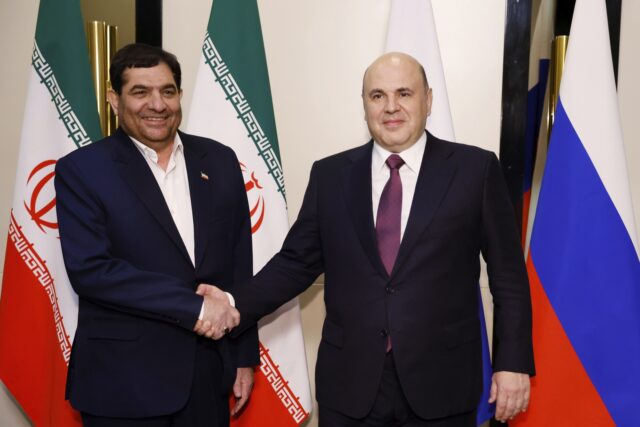Iran’s first Vice President Mohammad Mokhber has been appointed president of the Islamic Republic after the death of President Ebrahim Raisi in a helicopter crash in the country’s northwest
Who is Iran’s first vice president, Mohammad Mokhber, appointed acting president after crash?By JON GAMBRELLAssociated PressThe Associated PressDUBAI, United Arab Emirates
DUBAI, United Arab Emirates (AP) — Iran’s first Vice President Mohammad Mokhber was appointed as acting president of the Islamic Republic on Monday after the death of President Ebrahim Raisi in a helicopter crash in the country’s northwest.
Mokhber, 68, largely has been in the shadows compared to other politicians in Iran’s Shiite theocracy. Raisi’s death under the constitution thrust Mokhber into public view. He is expected to serve as caretaker president for some 50 days before mandatory presidential elections in Iran.
Iran’s supreme leader Ayatollah Ali Khamenei made the announcement of Mokhber’s appointment in a condolence message he shared for Raisi’s death in the crash Sunday. The helicopter was found Monday in northwestern Iran.
Despite his low-key public profile, Mokhber has held prominent positions with in the country’s power structure, particularly in its bonyads, or charitable foundations. Those groups were fueled by donations or assets seized after Iran’s 1979 Islamic Revolution, particularly those previously associated with Iran’s shah or those in his government.
Mokhber oversaw a bonyad known in English as the Execution of Imam Khomeini’s Order, or EIKO, referring to the late Supreme Leader Ayatollah Ruhollah Khomeini.
The U.S. Treasury said the organization oversaw billions of dollars in assets as “a business juggernaut under the direct supervision of Supreme Leader Ali Khamenei that has a stake in nearly every sector of the Iranian economy, including energy, telecommunications, and financial services.”
“EIKO has systematically violated the rights of dissidents by confiscating land and property from opponents of the regime, including political opponents, religious minorities, and exiled Iranians,” the Treasury said in 2021 in sanctioning Mokhber. The European Union also had sanctioned Mokhber for a time with others over concerns then about Iran’s nuclear program.
As the head of EIKO, Mokhber oversaw an effort to make a COVID-19 vaccine during the height of the pandemic, pledging to make tens of millions of doses. Only a fraction of that ever made it to the public, without explanation.
Mokhber previously worked in banking and telecommunications. He also worked at the Mostazafan Foundation, another bonyad that’s a major conglomerate that manages the country’s mega-projects and businesses. While there, he found himself entangled in a bitter legal dispute between mobile phone service providers Turkcell and South Africa’s MTN over potentially entering the Iranian market.
MTN ended up entering Iran. A Turkcell filing alleged Mokhber sought MTN’s help in securing “certain defense equipment” in exchange for potentially working with it as opposed to Turkcell.
Mokhber used “improper influence up to and including negotiating with and on behalf of the Supreme Leader in MTN’s favor,” Turkcell later alleged in a legal filing. An MTN report later said there were no arms transfers, though it acknowledge Mokhber was a player in Iran’s decision to go with MTN.
Iranian media reports suggest Mokhber, who holds a doctorate in international law, was crucial in Iranian efforts to bypass Western sanctions on its oil industry.
Mokhber has been a member of Iran’s Expediency Council since 2022, which advises the supreme leader, as well as settles disputes between parliament and the Guardian Council, Iran’s constitutional watchdog that also oversees the country’s elections.
Mokhber was born Sept. 1, 1955, in Dezful in Iran’s southwestern Khuzestan province to a clerical family. He served as an officer in the Revolutionary Guard’s medical corps during the 1980s Iran-Iraq war, according to the pressure group United Against Nuclear Iran.
“Mokhber used the vast wealth accumulated by EIKO — at the expense of the Iranian people—to reward regime insiders like himself,” UANI said. “Managing the patronage network endeared him to the supreme leader, but at a cost.”
___
Associated Press writers Amir Vahdat and Nasser Karimi in Tehran, Iran, contributed to this report.

COMMENTS
Please let us know if you're having issues with commenting.